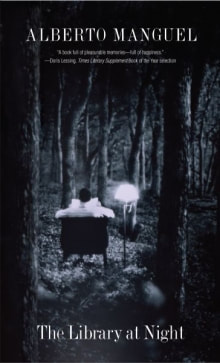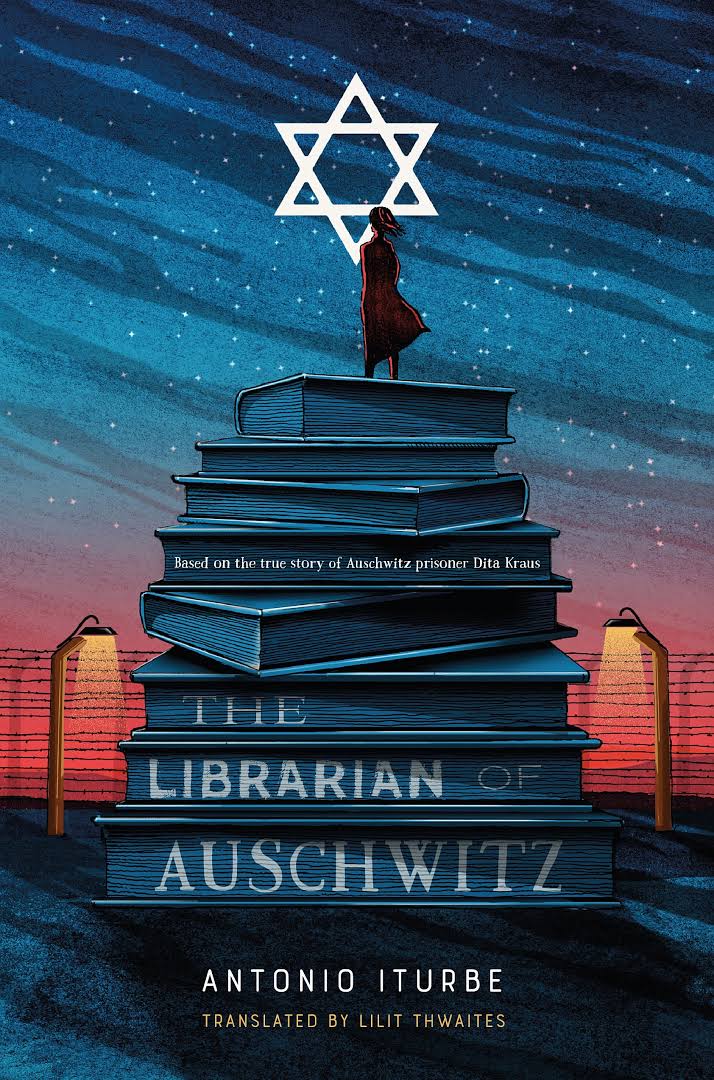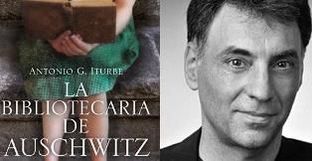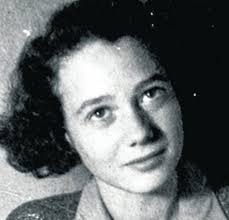 I have found blogging discouraging. I write and post and then nobody responds. However, I recently received an intriguing message from the other side of the world (Australia) to one of my earliest posts. I had read a New York Times Op-Ed by Alberto Manguel about a secret library at Auschwitz. I was haunted by the idea of children in a concentration camp seeking comfort in books. Here is the blog I posted. It turns out I was not the only person haunted by Alberto Manguel's mention of a secret library at Auschwitz. In 2011 a Spanish journalist, Antonio Iturbe, read Manguel's book, The Library at Night, and using his considerable journalistic skills, he went in search of information. He found the actual librarian, the older girl, in charge of the eight threadbare books. Her name was Dita Kraus and she was then 80 years old and living in Israel. He wrote a novel in Spanish based on her story. The English translation, elegantly done by Lilit Thwaites, was just published to great acclaim this October by Henry Holt. Lilit's husband came across my blog post and contacted me. I promised to read and review The Librarian of Auschwitz, which I stayed up finishing last night, with a box of kleenex at my side. The Librarian of Auschwitz is the perfect follow up to Anne Frank for the young adult and adult reader. It details the horrors of the camps, the inhumanity of genocide, and the amazing spirit and light of those individuals whose names and stories we must never forget. Here in the US, where fascists chanting "blood and soil" march with tiki torches through the lovely town of Charlottesville, we especially need to be reminded. But, The Librarian of Auschwitz is not just about the holocaust. It is also a story about the magic of books. Iturbe describes eloquently the power of books to transport readers to other places and times. What could be more important than to escape metaphorically for an hour from the horrors of a concentration camp? As Iturbe explains, for Dita this magical power inhered not just in novels, but even in H. G. Wells's A Short History of the World: A Short History of the World is the library book borrowed most frequently because it's the closest thing to a regular schoolbook. And there's no question that when she buries herself in its pages, she feels as if she were back at her school in Prague, and that if she were to raise her head, she'd see in front of her the blackboard and her teacher's hands covered in chalk. (114) Here Wells' book returns her to the comfort of her life before it was interrupted by war. But it also carries her far, far away. That's why she prefers to return to the pages about ancient Egypt, which immerse her in the world of pharoahs with mysterious names and allow her to board the boats that navigate the Nile. H. G. Wells is right. There really is a time machine--books". (116) Dita is in charge of not just books on paper, but also living books, the stories narrated by gifted tellers. One of the most moving scenes in the novel is when a fellow inmate tells Dita the story of The Count of Monte Cristo. She is drawn to the figure of Edmond Dantes. She also wonders if, were she successful [in escaping], she'd dedicate her life to taking revenge on all the SS guards and officers, and if she'd do it in the same methodical, implacable, and yes, even merciless, manner as the Count of Monte Cristo. Of course she'd be delighted if they suffered the same pain they inflicted on so many innocent people. But nevertheless, she can't avoid feeling some sadness at the thought that she liked the happy and confident Edmond Dantes of the beginning of the story more than the calculating, hate-filled man he became. (278) Here books give her a way to explore the ethics of revenge and to sort through the immensely complicated emotions of her experience.
It was through the magic of books, specifically Alberto Manguel's book, The Library at Night, that Iturbe came across Dita's story. I am thankful to him. I am thankful to Iturbe for writing the novel that has brought the story to life, and I am thankful to Lilit Thwaites for making the novel available to English speaking audiences. I am thankful to Lilit's husband to reaching out to me. Books have ripple effects. One cannot anticipate how and where these ripples will expand. It is my hope that the waves from The Librarian of Auschwitz will reach far and wide for a long time to come.
7 Comments
|
Caroline McAlisterCaroline is an avid reader, children's writer, and teacher. She lives in North Carolina with her husband and dog. Check out her bio for more! Archives
February 2024
Categories
All
|



 RSS Feed
RSS Feed